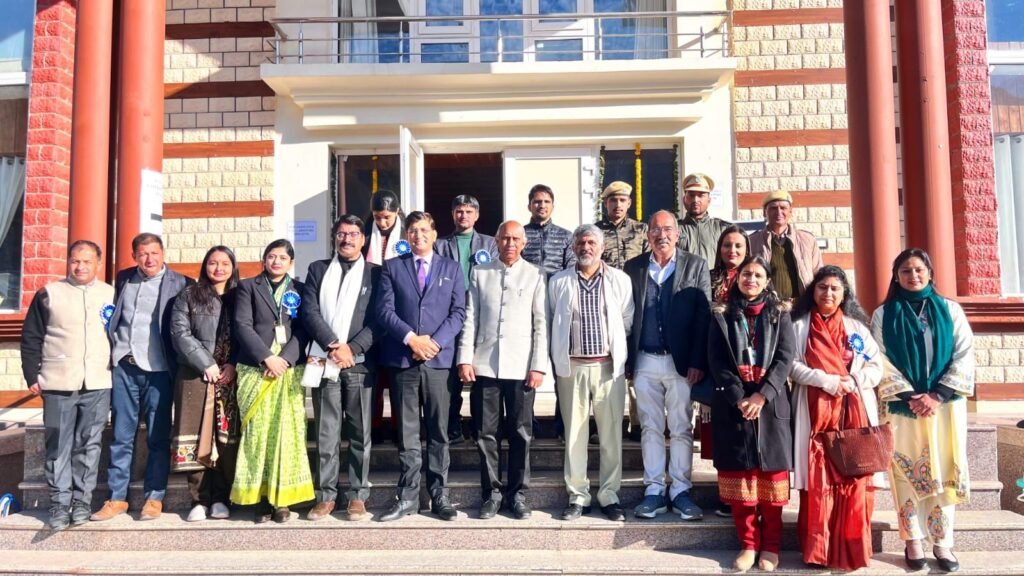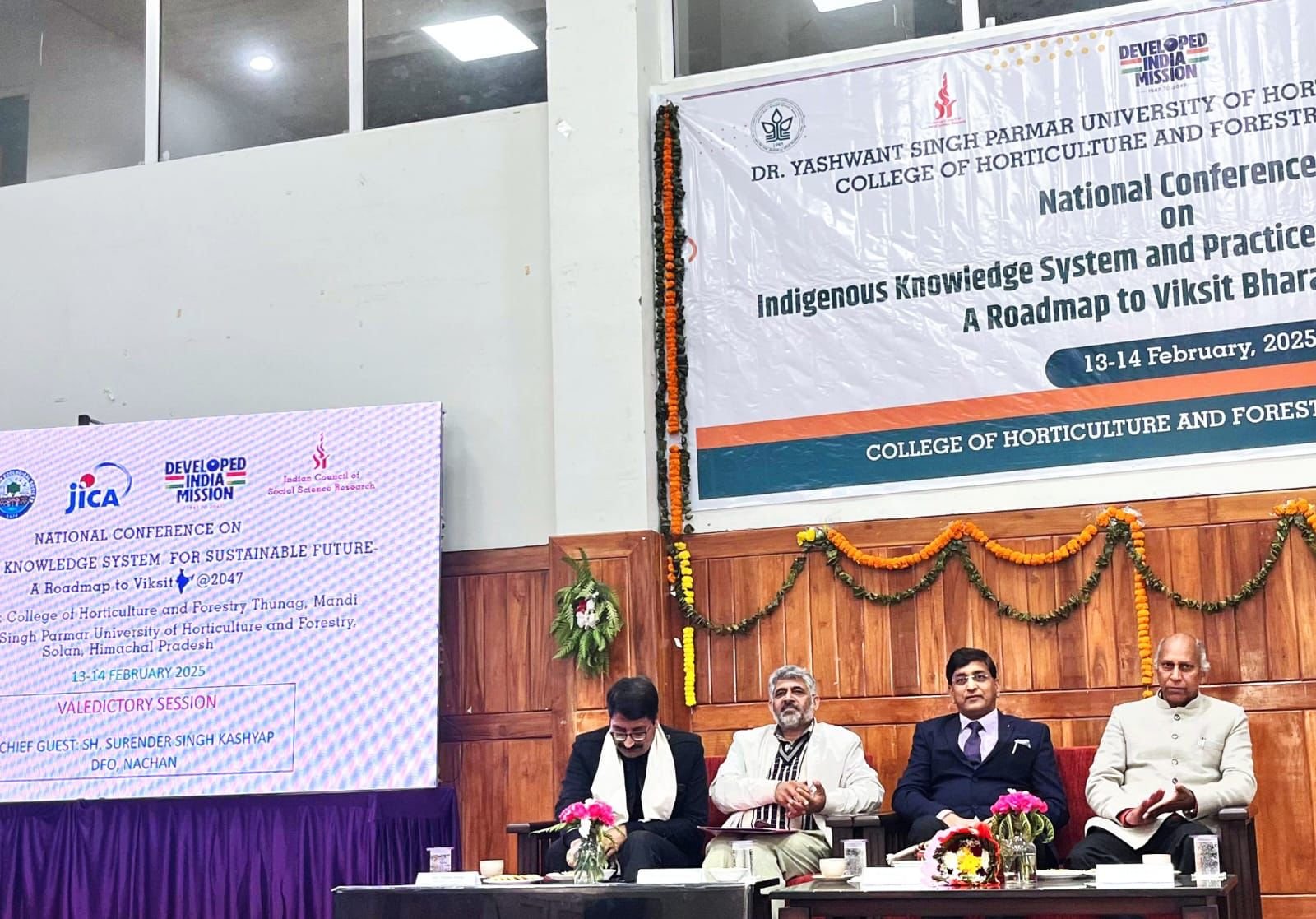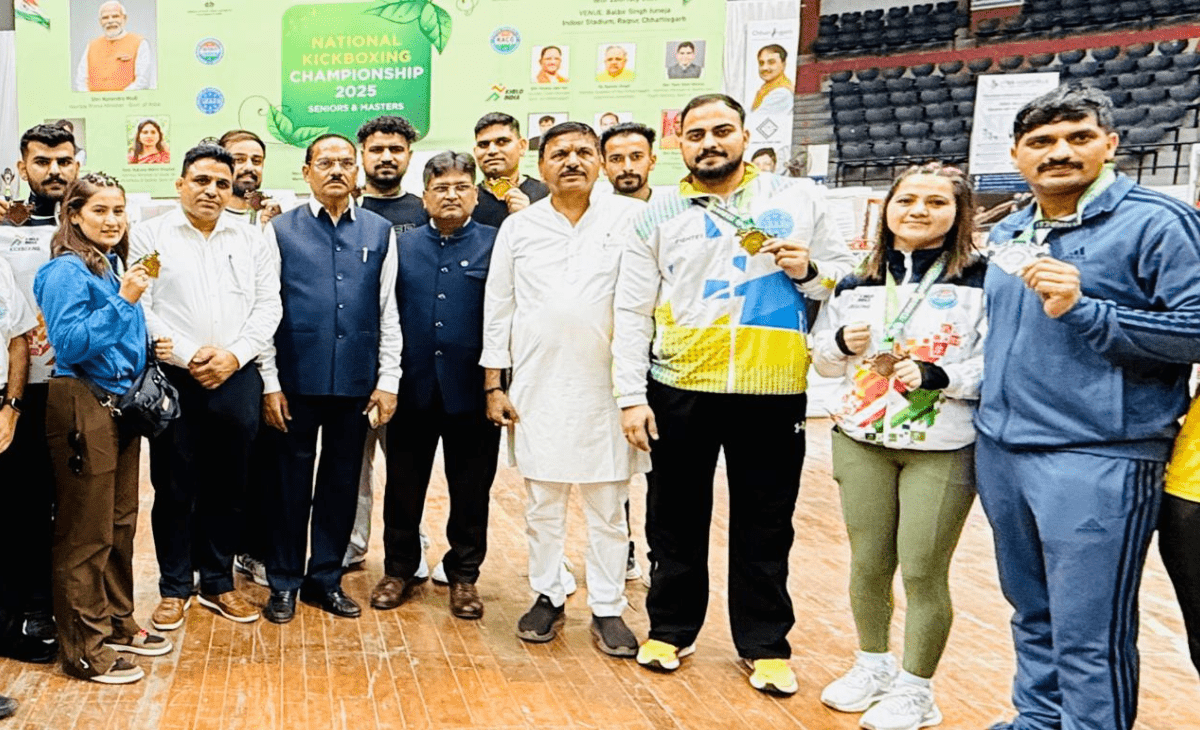Munish Sood
MANDI: A two-day national conference on “Indigenous Knowledge Systems for a Sustainable Future: A Roadmap to Viksit Bharat-2047” was organised at the College of Horticulture and Forestry (COH&F) at Thunag in Mandi district of Himachal Pradesh.
The conference was organised from February 15 to 16 under the aegis of Dr YS Parmar University of Horticulture and Forestry, Nauni, in collaboration with the Indian Ecological Society.
It was sponsored by the Indian Council of Social Science Research (ICSSR) under the Vision Viksit Bharat@2047 initiative. The conference brought together over 130 participants from eight states, including academicians, scientists, policymakers and environmentalists.
The event aimed to highlight the relevance of India’s traditional knowledge systems in achieving a developed and sustainable India by 2047.
Addressing climate change, adopting sustainable practices
The conference focused on integrating indigenous knowledge with modern science to address critical global challenges like climate change, sustainable agriculture, biodiversity conservation and environmental resilience.
Experts discussed traditional ecological practices, Ayurveda, agroforestry and natural farming methods as solutions for sustainable development.
In his inaugural address, chief guest Chander Shekhar, Congress MLA from Dharampur, emphasised the urgent need to prioritise ecological health alongside economic development.
He stressed that while development is necessary, sustainability must be the guiding principle.
Dr Sanjeev Chauhan, Director of Research at Dr YS Parmar University and National Secretary of the Indian Ecological Society, underscored the importance of financial self-reliance for institutions engaged in ecological research.
Divisional Forest Officer Surendra Singh Kashyap, who was the chief guest on concluding day, highlighted forest conservation as a crucial measure to combat climate change and encouraged policymakers to implement stronger environmental protection strategies.
He also gave away prizes to all experts who presented their works during the two-day session.
Key sessions & expert insights

The conference featured five technical sessions covering sustainable agriculture, indigenous forest conservation methods, biodiversity protection, traditional medicine and natural resource management.
Several distinguished experts shared insights on integrating traditional practices into modern environmental policies:
Prof Pradeep Kumar, Dean-Academics, Central University, spoke about India’s rich scientific and technological heritage, emphasising the importance of innovation in national development.
Ashish Gupta, founder of Gram Disha Trust, discussed the market potential of natural farming products and the certification of medicinal hemp in Himachal Pradesh.
Prashant, Managing Director of Biospark, elaborated on the medicinal significance of hemp and its expanding global cultivation.
Prof DR Thakur, Director of UGC MMTTC, emphasised the scientific validation of India’s traditional knowledge systems.
Dr KT Parthiban, former Dean of the Forest College and Research Institute, Mettupalayam, discussed agroforestry challenges, mixed wood cultivation, and India’s leadership in high-value timber production.
Dr Sushil Kapta, expert in the Himachal Pradesh JICA Forestry Project, provided a comprehensive overview of forest area statistics, legal classifications, and World Bank- and JICA-funded forestry initiatives in Himachal Pradesh.
Padma Shri Nek Ram Sharma, a pioneer in natural farming, spoke about traditional agricultural technologies and sustainable food practices, highlighting the importance of reviving indigenous grain cultivation.
Dr Pankaj Sood, Principal Scientist at KVK Mandi, discussed the scientific basis of various traditional Indian farming and ecological practices.
The conference reinforced the need for a holistic approach to development, one that respects and integrates ancient wisdoms with contemporary technological advancements.





